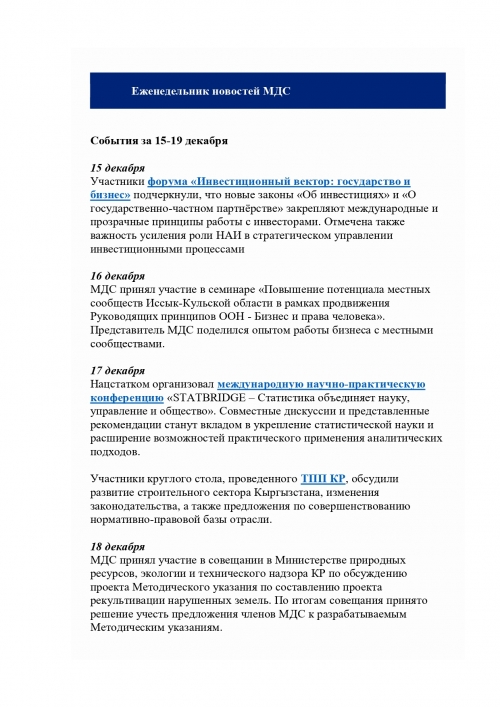News /
IBC news /
Kyrgyz Economy Minister and business associations discuss current business issues
On January 25, Kyrgyz Economy Minister Oleg Pankratov and representatives of the leading business associations discussed topical problems that impede the development of the domestic business.
Leaders of business associations told about the complexity of international transportation when crossing the borders of Russia and Kazakhstan, and shortcomings of the harmonization of excise taxes on alcohol and tobacco. They also informed on the problems faced by entrepreneurs working in the free economic zones.
This year, the tax exemptions for FEZ entrepreneurs will lose their full force. The business proposed to extend tax breaks for the FEZ entities. According to the Bishkek FEZ General Directorate, the FEZ output is expected to decrease by 30% if the new rules are introduced.
The parliament deputies supported the suggestion to extend tax breaks but the Economy Ministry insists on its proposal to remove tax benefits, as it would help increase tax revenues to the state budget.
Currently, there are five FEZs in Kyrgyzstan — in Bishkek, Karakol, Naryn, Maimak, and Leilek. The most of entities, almost 300 enterprises, are located in the Bishkek FEZ.
IBC also raised another important issue. Investors cannot take advantage of the benefits provided by the legislation on investments. The stabilization regime introduced by amendments to the Investment Law in 2015 does not work in practice. In addition, in recent years, several innovations were introduced into the legislation, which negatively affected the financial model of mining enterprises in the Kyrgyz Republic.
In September 2017, the government approved the Regulation “On the procedure and conditions for the application of the stabilization regime”. The provision in the proposed wording still does not contain real mechanisms for the full-fledged use of the stabilization regime. In particular, there are no obligations of the state to provide guarantees to the investor regarding the signing of agreements.
Solving business problems requires an immediate response from the government, heads of the business associations said.




























